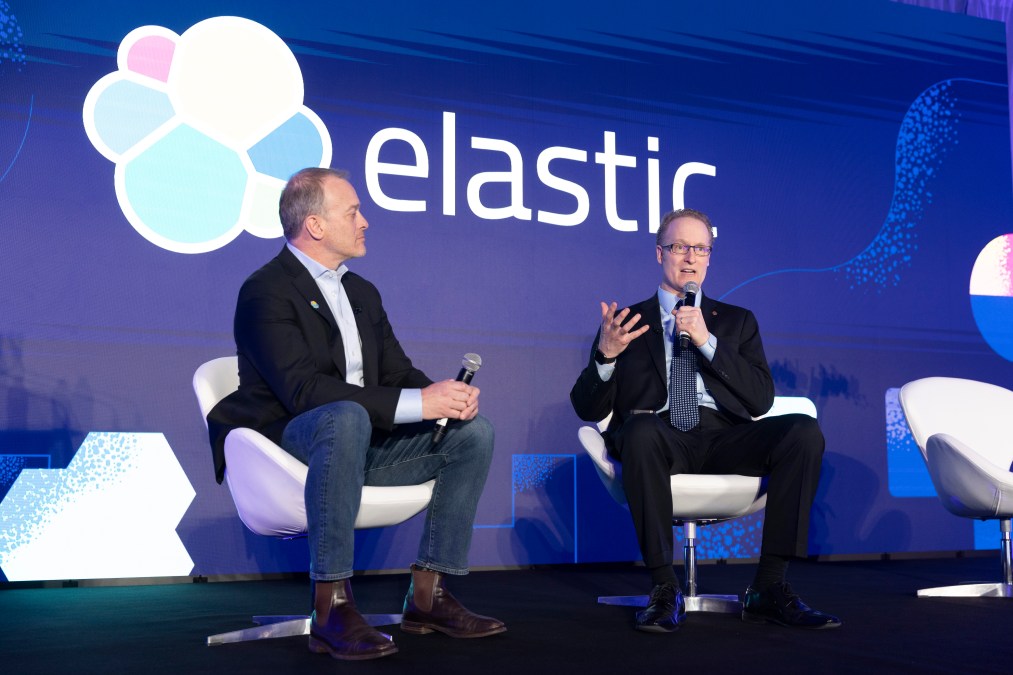The US is leading its counterparts in digital transformation at scale, GSA’s Shive says

HERSHEY, Pa. — In recent weeks, General Services Administration CIO David Shive has met with the heads of digital services entities of more than a dozen of the United States’ most innovative counterparts: Estonia, Indonesia, Canada, Australia and more.
From those meetings, Shive learned the U.S. is at the top of the class in one very important measure: digital transformation at scale.
“There are a few countries out there that are getting it right, you know — Estonia, Singapore, places like that,” Shive said Monday on a panel at ACT-IAC’s Imagine Nation ELC conference in Hershey, Pa. “There’s a few countries that are doing a good job at scale. But as the facilitators surveyed all of these heads of these transformation entities all around the world, there was one theme that came out: that there was one country that was getting it right at scale. And that country is the United States.”
He pointed to GSA’s Login.gov single sign-on platform as a prime example of that scaled digital transformation at play.
In an interview with FedScoop after his panel concluded, Shive detailed his conversations with those other nations and why the U.S. is “getting it right at scale.”
“They were saying, ‘Hey, we do it good. We don’t do it good at scale.’ Or they do it at scale, but they’re doing an OK job” making meaningful progress with transformation, he explained.
The top reason for that success is the nation’s “ruthless” dedication to efficiency and taking an incremental approach in pursuit of that,” Shive said.
Speaking from the experience of what that looks like at GSA and within the federal government, he added: “We’re pretty focused on turning good to better, and better to best because we’re all public servants, and that’s why we’re here. And at GSA specifically, we put lots of time and attention into making incremental improvements, investing incrementally, whether that’s dollars or time or people — into doing things just a little bit better every year. And in the end, you know, you’ve done a lot better. That’s a hallmark of the way we deliver here in the federal government. And other governments, they tend to try to do big wholesale things, and failure rate on that, it’s pretty high.”
This think-big, start-small, fail-fast mentality developed in Silicon Valley and is responsible for the innovation there, the GSA CIO said — and in the past decade or so has made its way to the federal government, allowing for course correction and minimal repercussions when a program or initiative does fail.
“I asked some of the leaders from these other places: ‘Why do you think the United States is able to do some of this good work, right, and at scale?’ And that’s the lever that they sometimes struggle with. And they said, ‘We think it’s because you have this incremental mindset. You incrementally invest in time and people and resources, and also you incrementally invest dollars that way. You don’t ever steer too far off of the right path. And when that path changes ahead of you, because it does — the administration changes or [there are] changes in enabling technology — you’re able to course correct very quickly because you’ve not put all your eggs in the basket of doing a big transformation.'”
Shive’s peers pointed to the federal government’s Technology Modernization Fund as an example of that iterative digital transformation investment, he said.
“This is a genius construct, basically ripped out of Silicon Valley, this idea that you would have a 10x transformation fund, not to solve the problems of government technology, but to develop the roadmaps for how to do that, so that you can have informed asks to things like appropriators saying, ‘We’re not asking based on theory. We’re asking based on, we tried this and generated good value and so we need additional investment in this space, whether it’s cyber or [customer experience] or AI or whatever it is.’ Asks based on actual outcomes — that’s a genius thing.”
Shive also recognized the importance of centers of excellence within the federal government that act as a rising tide to benefit other entities in and outside of the public sector, such as the Federal CIO Council, GSA’s Technology Transformation Service and the Federal Acquisition Service.
“All of this stuff individually doesn’t help a government do the right thing at scale, but all of these things combined together creates this kind of ecosystem of awesomeness that allows us to have a possibility to do great things at scale,” he explained.
And while the U.S. in both the public and private sectors must continue to press the gas driving digital transformation, Shive said, it takes a continued partnership between the two to do as much.
“The work doesn’t get done right at scale unless we, the government, and our industry partners are closely coupled and doing a really good job,” he said during his panel. “So I wanted you all to hear … that the entire world is watching what we’re doing, and they are super proud and excited by what we’re doing and using that as a roadmap.”






